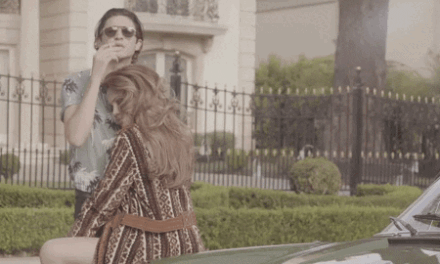Understanding Emotional Unavailability and Negligence changed how I viewed relationships.
It took social media psychology to open my eyes and expand my vocabulary to what I could never articulate. Coined phrases like emotion unavailability and emotional negligence were like an arrow hitting a bull’s eye, alarm bells going off in my head. What the hell are emotional unavailability and emotional negligence, you might ask? It’s exactly how it sounds.
In a nutshell, ‘Emotional Unavailability’ is an individual’s inability or unwillingness (for whatever reason) to be present and hold space for you to express, share, or connect with your emotions and theirs on a deeper level, ultimately hindering the development of meaningful emotional bonds with others.
Psychologically, these concepts are often associated with attachment theory, wherein individuals may struggle with forming secure and intimate connections due to past experiences, personality traits, or unresolved emotional issues. It strains relationships, leading to difficulties in communication and empathy, and profoundly affects the overall emotional intimacy.
Explained from the context of being seeded in childhood shaping our psyche of what is acceptable and what we are attracted to was mind-blowing to me (not to mention the relationship cycling that happens when unresolved). The achy feelings of low energy – feeling unsupported with a touch of familiarity- haunted each relationship I entered. Was I attracting partners that were emotionally unavailable to me because that is what I was used to? Or was I the emotionally unavailable one, choosing boyfriends who didn’t want to create healthy intimate partnerships and rejecting the one who did? When the ideal perfect boyfriend came along, they seemed to lack excitement; they were not edgy or cool enough, so our coupling didn’t feel natural. Somehow, a harmonious relationship seemed unreal and dull. I felt uncomfortable with NO fighting ever. How can a couple NOT fight? Where’s the passion? Relationships are work. I believe marriage is something you work on, and it wasn’t meant to be easy. Disharmony laid the groundwork for what I considered reality. (Photos: SlLGhin @sustainablysingle.com)
“Emotional neglect can be defined as a relationship pattern in which an individual’s affectional needs are consistently disregarded, ignored, invalidated, or unappreciated by a significant other.”
-Developmental-Behavioral Pediatrics (Fourth Edition), 2009.
I didn’t trust anything that went too smoothly, holding an abated breath for the other shoe to drop; those easy relationships that should have been ‘the one’ never lasted. Terms like hypervigilant due to trauma exposure never crossed my mind. Looking back, I realized this was me. I had grown used to the anxiety of anticipating every situation in those problematic relationships – finding a solution to every challenge and being the perfect wifey. When those ideal boyfriends did appear, I was not ok with it; there was always something I did not like, and for some reason or another, I managed to sabotage it and grieved the loss of “the one who got away” later on.
The love affairs that did last often were the passionate, dramatic, heart-wreaking ones that were extremely taxing on my mental/physical health and quality of life, but somehow, I was used to it – it felt genuine, like real life. Then, after the last bad break, I pressed pause. I canceled the dating apps, let go of the relationship goals, and took a deep dive into the abyss of self-curated psychology education; here is what I found.
Unveiling the Roots:
At the heart of emotional unavailability lies the imprint of caregivers who couldn’t consistently meet our emotional needs during childhood. (Here’s looking at you, Mom.) Whether due to their unresolved issues, traumas, judgments, or external stressors, growing up with emotionally unavailable role models sets the stage for intricate romantic dynamics. Conversely, emotional negligence stems from caregivers being indifferent or dismissive of our emotional experiences. It gives me peace to believe our parents didn’t know better. Normalizing this kind of treatment develops our emotional detachment and hesitancy in forming vulnerable connections later in life and can define our self-worth.
The Impact on Attraction:
Our unconscious minds often draw us towards the familiar, and for those who experienced emotional unavailability, finding potential suitors embodying similar patterns becomes magnetic. (That cool person is somehow hot, lol. ) The emotional distance feels proper and comfortable that the guy is not too eager, too flowery, or ‘too there. There’s a peculiar trustworthiness in that, almost like an authentic pairing (even if it means replaying emotional dynamics from the past) and fostering a feeling of being understood. Forging a relationship with someone with similar traits is a weird form of validation, like finding someone from the same background as precious and rare. Two of a kind- against the world. The ‘one’ over the others- the ‘special relationship.’
Acceptable Behavior in Partnerships:
Unbeknownst, our childhood experiences shape the framework through which we move through relationships. Individuals accustomed to emotional unavailability may find normal, well-adjusted partners too expressive, eager, overwhelming, perceiving vulnerability as a potential threat, or strangely uncomfortable.
Those affected by emotional negligence where emotional unavailability is consistent and regular when it is most needed- (like, say, when a child needs a missing parent) are more tolerant of the little to no connection and accountability doled out, justifying their partner’s shortcomings by being understanding or ‘supportive.’ All the while downplaying my own needs. The identity of the cool girl who ‘got it’ but didn’t have a happy relationship. But in turn, it perpetuated a cycle of dependency in the end.
Psychological Impact on Mental Health:
The consequences of carrying heavy emotional baggage over time are profound and aging, especially when the stress is not detected. The extra effort to work towards, enjoy, and connect more is mentally draining and takes a toll. Individuals struggling with emotional unavailability may find it challenging to form deep connections, leading to feelings of isolation and loneliness, like being alone in a relationship. On the flip side, those affected by emotional negligence might grapple with issues such as low self-esteem, anxiety, or depression rooted in a lack of emotional validation, perpetuating a cycle of co-dependent attachment.
There is so much going on in life, and the idea of someone by your side, whether to enjoy adult time, support, or share some responsibilities, is ideal. However, how many times has this been the case? In our complex world, which is growing even more complicated, it takes time to establish boundaries and understand what makes you thrive or deplete.

Identifying emotional unavailability and negligence and assuming accountability for the quality of your experience can foster improvement as relationships provide a fertile ground for introspection and open the door to learning what and how to nourish yourself and others for growth. These terms, rooted in the crucible of childhood, wield significant influence over our attractions, expectations, tolerances, and acceptable behaviors in partnerships. By unraveling these complex threads, we embark on a journey of transformative self-discovery, fostering the potential for more authentic and emotionally satisfying connections in our lives.
Only the personal self-growth work reminds us that two people contribute to the relationship, what our unconscious programming is, and how we can be accountable for our quality of life.
(Photos: SJLGhin @sustainablysingle.com)
It’s an eye-opener to turn the glaze to oneself and review the choices made, the blame game, and the desire to control what we can and can not, like trying to rehabilitate a partner’s behavior to suit a standard, no matter how justifiable it may seem, ultimately, you are responsibility for someone else’s self-growth, only your own.
10 Red Flags: your partner may be emotionally unavailable and negligent.
1. “I can’t right now.” MIA:
– When your partner consistently prioritizes their needs before yours, minimizing the importance and effect your needs have on you. Your partner’s got this knack for brushing off your emotions like it’s no big deal, showing about as much empathy as a rock.
2. Emotionally Mute:
– If your partner’s tight-lipped about their feelings or dodges emotional talks like a game-day decision, that’s a neon sign of emotional negligence. Sometimes, a partner might need help understanding the context fully, but effort and attention should be made to connect and support you. Giving up quickly and using their lack of understanding as an excuse is unacceptable. It is their way of not having to give you the attention you deserve.
3. Spotty Emotional Backup:
– When the going gets tough, your partner’s emotional support is on vacation, leaving you high and dry when needed. When someone is genuinely invested in you, they are with you through it all. Your pain is their pain.
4. Validation Vacuum:
Do you ever get the feeling your partner’s a one-person applause section? You’re in the validation void if they’re not giving your feelings a nod. This one is a clear sign that you are on different pages. When aligned, it is easier to move forward, and every step is smooth and varied.
5. Intimacy Evader:
– Deep talks are off-limits. Your partner’s like a vault regarding emotions, making it hard to connect on anything beyond the surface level. Depth and intimacy are what separates friends from lovers. Romantic relationships that are superficial stay superficial and eventually dry up as someone gets a wandering eye.
6. Concerns on Mute:
– You lay out your worries and your partner’s response. A nonchalant brush-off. Your concerns deserve a lot more than that.
Nothing is more infuriating than a partner that isn’t listening. You deserve to be heard, seen, and sympathized with; a part of being a couple is sharing concerns and working on them together. Silence is not acknowledging or validating; a simple answer can make a difference in feeling seen and heard. Learning how to communicate with your partner doesn’t have to be a huge effort; sometimes, saying I heard you is enough.
7. No Compromise Zone:
– Flexibility? Not in their vocabulary. Your partner’s way or the highway, leaving your emotional needs in the dust. This is a one-sided kind of love and a conditional love. This kind of love doesn’t allow you to explore your fullest potential. Understanding and accepting someone else’s limits is a harsh and necessary reality. It’s the moment of truth that sets a new path for you, possibly a better one.
8. Ghosting Emotionally:
– Physically there, but emotionally? Good luck finding them. The connection’s about as deep as a puddle on a hot day. It is possible to be more alone in a relationship than in one. Patriarchy has influenced society for ages in the belief system that marriage is the best thing for a girl. Yet studies show that a woman’s life expectancy and quality of life decrease in a marriage while a man’s increases. It takes courage to be honest with your situation, desires, and ego. Thinking you can manipulate another person to suit your needs will end badly when it goes against their instincts.
9. Sorry-Not-Sorry Expert:
– When an apology feels like pulling teeth and taking responsibility is a foreign concept, you’re dealing with an emotionally negligent maestro. Saying ” sorry ” for the benefit of saying sorry and making up without the accountability work and validation is not healing and is more hurtful; it is a poly to move on without inconvenience and creates a rift instead of building towards a deeper connection that can only be destructive. Be careful what you are accepting as an apology. Does the apology address the concern?
10. Invalidation Central:
– If your partner’s flippant attitude undermines your emotions, opinions, and experiences, making snide comments or ill-color jokes disrespects your emotional well-being like a hobby. Unfortunately, this kind of interaction compounded makes it harder for the other to feel good about themselves and a struggle to keep the love going.
Remember, these cues aren’t the smoking gun but the glow-in-the-dark signs you should not ignore. Having open conversations and employing an intermediate person like a friend or a therapist to help de-tangle these concerns will be a turning point for the better and hopefully bring harmful tendencies to light.








Thanks so much for sharing both your vulnerability as well as all the info!! Really like the red-flag part. Very interesting and good to have a list like that
This is an amazing and well-put blog post. I will be saving it to my favorites and sharing it. Thank you so much for sharing.
I wish everyone would read this before they get into a relationship. We’ve been so wired to mystify aloofness that it is almost seen as a plus, when the entire idea of a relationship should be a real connection. And if it’s not worth starting, it’s definitely not worth staying in. Thanks for the indepth insight.